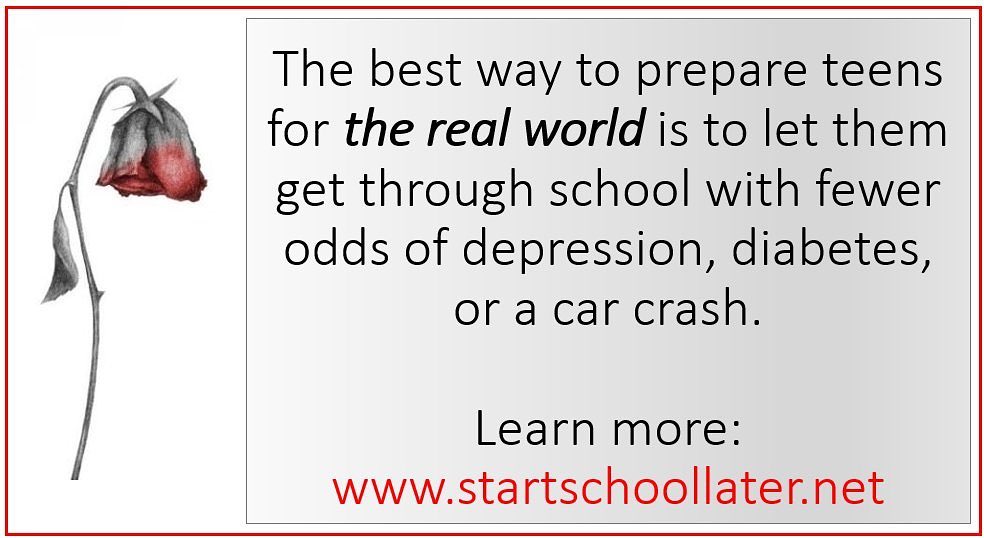|
Battling over sleep with your teenager? It doesn't have to be that way. By Stacy Simera, MSSA, LISW-S  As a therapist and a mother of two recent teens, I know that there are a lot of areas of conflict that can arise between parents and their children, including homework, screen time, chores, clothing, and money. When it comes to bedtimes and sleep, we parents are often too tired to fight–literally and figuratively. Yet research from the last few decades is telling us that enforcing healthy sleep patterns is a battle well-fought. Chronic deficient sleep is tied to increased risk of teen car crashes, diabetes, depression, suicide, cardiovascular disease, immune dysfunction, and more. Every animal on this planet needs sleep, and you will have a healthier and happier teen if you help ensure they get around 9 hours of sleep each night. But don’t look at it as a battle between you and your teen. Instead, view it as a team effort in which you and your child are fighting against societal norms and lack of awareness. Your teen has heard adults say things like “The early bird gets the worm,” and they’ve seen influential people brag on social media about how little sleep they get while they are making buckets of money or important decisions. Your teen may also have a school schedule that is unsupportive of sleep – with bus pick-ups at 6 a.m. and sporting events that run late on school nights. Yet data shows that persons in the highest income brackets get more sleep than persons in poverty, and humans make our best decisions when we get adequate sleep. And local educational institutions were, ironically, not well-educated on sleep when they set up their schedules–schedules that are based on convenience, not on student biology. But the aforementioned influences most likely have led your child to underestimate the vital importance of sleep on human physical and psychological well-being–and we need to change that. Here are my tips for having a healthier and happier teen: Educate on the benefits of good sleep, rather than the risks of poor sleep. Education can go a long way in improving health behavior. But keep in mind that adolescents tend to pay more attention to benefits rather than risk. Part of this is related to how their brains process information, and part of this is related to their sense of invincibility. Telling a teen that lack of sleep has been associated with increased risk of sports injuries won’t be as effective as telling them that improved sleep has been shown to increase athletic performance and recovery. (Just look at some of the classic studies at Stanford on sleep and athletic performance, including improved free-throw percentages among basketball players.) You know what will best influence your child, so look through some of the data on this website and find out which of the many benefits of sleep will resonate with your teen, whether it is improved mood, memory, weight management, academic performance, or skin health. Telling a teen that lack of sleep has been associated with increased risk of sports injuries won’t be as effective as telling them that improved sleep has been shown to increase athletic performance and recovery. Acknowledge the later shift in sleep cycle, but don’t let it be an excuse for 2 a.m. bedtimes. Your teen may be aware of the phase delay that occurs during puberty, and they may therefore cite that delay as a reason why they can’t adhere to an early bedtime. While the science is clear on the changes in sleep during puberty, don’t let that be an excuse for obnoxiously late bedtimes. I’ve had these discussions in therapy sessions, and they often go like this: Me: How much sleep are you getting lately? Teen: I dunno, maybe four or five hours. Me: Why only four or five hours? Teen: Well, I have to get up at 6 a.m. to catch the bus. Like you’ve said, school should start later. [Kids often Google me and find out that I volunteer for the non-profit Start School Later.] Me: Yes, school should start later, but that’s not the only problem I see. If I’m doing the math right, on nights that you get four hours of sleep, you’re going to bed at 2 a.m., right? Teen: Yeah, because of that later shift in sleep. It’s biology. Me: Okay… I’m glad you’re listening to science, but that’s not exactly how it works. Yes, you’re on a later shift in sleep during puberty, but that shift is around one to two hours later, not four hours later. I have no problem telling your parents that an 8 or 9 p.m. bedtime is unrealistic, but 2 a.m. is not biology, that’s you staying up too late. Which leads us to the next tip… Be vigilant about screen time and caffeine use. If you first acknowledge the later shift in sleep cycle, your teen may not resist the next conversation – which is about screen time and caffeine use. Sure, you aren’t expecting your teen to go to bed at the same time as their eight-year-old sibling, but you also don’t want your teen to sabotage their chances for a decent bedtime. You and your teen are probably aware of the negative impacts of caffeine and screen time on sleep - but awareness and vigilance are not the same thing. Caffeine Awareness Encourage your teen to read labels or search online for the caffeine content of items that are popular amongst their peer groups or teammates. People are often stunned to find out how much caffeine is in certain products, including athletic drinks or mixes (especially “pre-workout”) and chocolate (sorry to break that news). Your teen may insist that caffeine doesn’t impact them, but it will, especially within six hours of bedtime. Blue Light Filters I’d like to tell you to limit screen time in the evening, but I’m well-aware that evening screentime is inevitable, including for us adults. Therefore, another option is to enable a blue light filter on the various devices in your home or wear blue light filter glasses. Most newer phones, tablets, and laptops have an option in the settings, sometimes called “Night Mode,” that will filter out the stimulating blue light every evening and change the screen output to an orangish hue. Your teen has to turn this option on, and I highly encourage that you not only ask them to do it, but also follow up and make sure they did. If they have older devices, there are apps they can download. Enacting a blue light filter doesn’t mean that you can have your nose in your tablet without negative impact, but it’s better than nothing. You can’t pour from an empty pitcher. It’s the same for parents, so take care of yourself as well. Advocate for healthy school start times–districts are often influenced by parents more than data. Nearly every major medical group in the country has very clearly stated that middle and high schools should start after 8:30 a.m., and even the RAND Corporation crunched the numbers and showed that there is a positive economic impact when schools start later. Yet research and data and medical position statements don’t influence local school districts as much as parents do. Parents pay the taxes and vote in the school board members (in most districts) and fill the seats at band concerts and soccer games. Talk to your school board and your superintendent, get your PTA involved, and make it clear that the parents are asking for, and support, a move in the right direction. Fight for your teen when needed. Your child has no greater champion than you, and sometimes you have to fight for your child. If the cause of your child’s poor sleep is related to sports schedules, talk to the coach about those late-night practices. Maybe you’re the fourth parent to say something, and the coach is now motivated to make adjustments. Research and data and medical position statements don’t influence local school districts as much as parents do. If your school is resistant to adopting healthy school start times, and you know your child is suffering, explore creative options. In middle school, I allowed my sons to periodically sleep in on Wednesdays, especially during sports seasons. When my oldest was in high school, I asked for study hall first period and he skipped it every day (my youngest chose a STEM high school that started an hour later than the local public school). I am aware, however, that my children benefited from my ability to drive my children to school, and I know that not every household has that flexibility. If your child’s sleep continues to be deficient or disrupted, and you can’t figure out why, talk to your primary care physician and see if a referral is needed for a sleep study or mental health assessment. Depression, anxiety, and PTSD can greatly interfere with sleep, as can many sleep disorders. Get good sleep yourself. My last tip is for you to get good sleep yourself. Adults should get around 8 hours of sleep, and when you get the sleep you need, you’ll have more energy for effective parenting. There’s a saying among mental health professionals: You can’t pour from an empty pitcher. It’s the same for parents, so take care of yourself as well. Stacy is an independently-licensed social worker. She provides therapy for children, adolescents, and adults at Kent Psychological Associates and serves as the chair of the sleep committee for the Ohio Adolescent Health Partnership.
0 Comments
|

 RSS Feed
RSS Feed